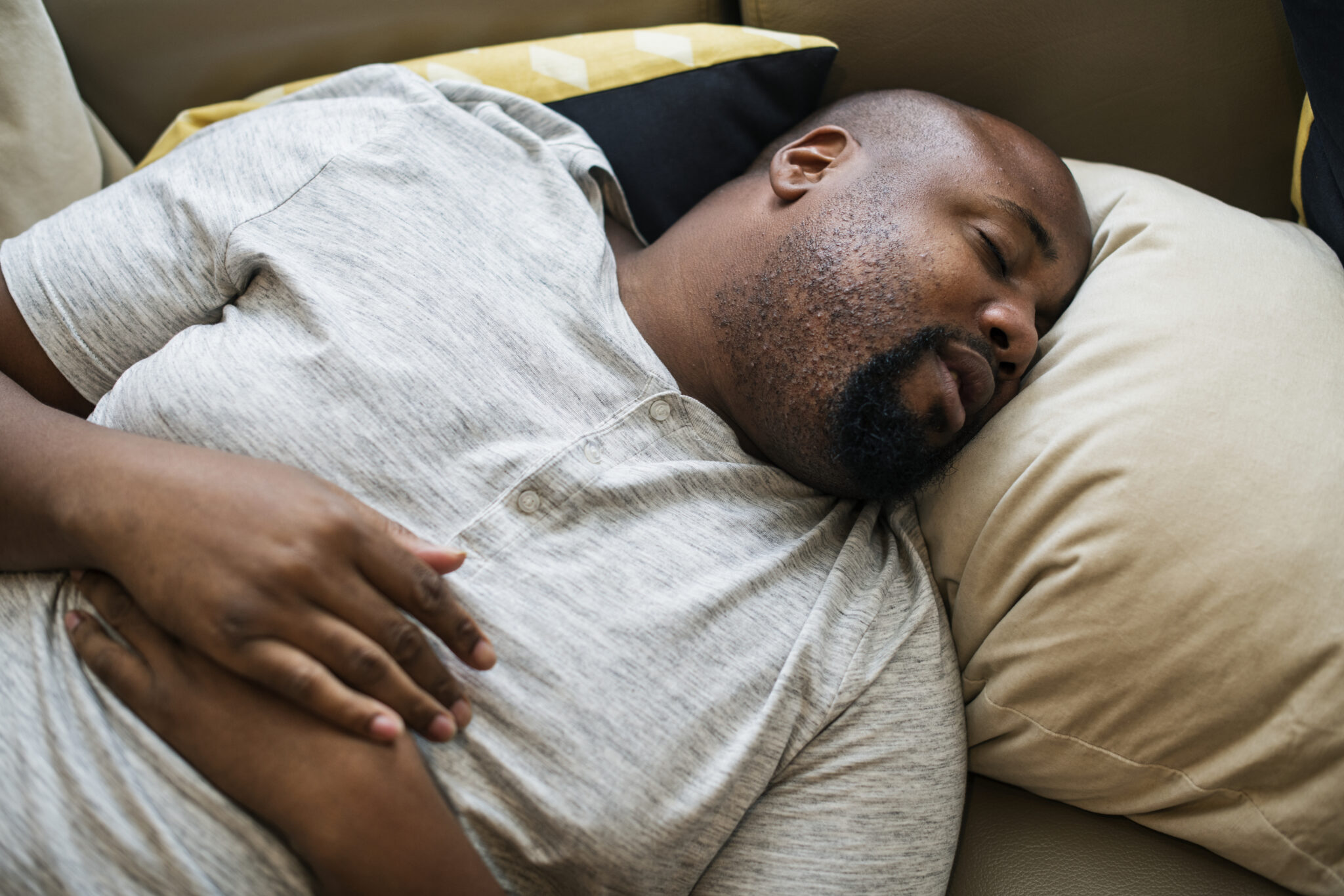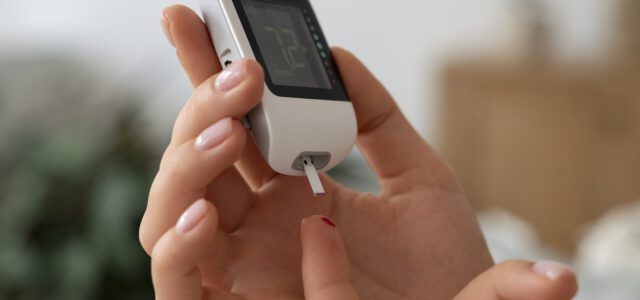Most of us are familiar with melatonin today. We know that it has to do with sleepiness and our sleep cycle, and that we can buy it in vitamin form to help us nod off at night. You might even know a little bit about what affects your natural melatonin levels, like light exposure. But did you know that just like estrogen, testosterone, dopamine, and adrenaline, melatonin is a hormone?
Melatonin is just one of the many, many hormones that act as chemical messengers in our body, allowing the different systems to communicate with each other and interact to keep your normal bodily functions– like sleep, digestion, and the reproductive system– working properly. For everything we know about melatonin, it still remains a mystery in some ways, and scientists and researchers are trying to figure out just what makes it tick. Want to know more about melatonin and what it does in your body? Keep reading to find out!
What is Melatonin?
Melatonin is a hormone, and it’s often referred to as the sleep hormone, because that’s just what it does! Melatonin is the main chemical at work in your body to keep your sleep cycle regular. When you start feeling drowsy at night, that’s your body’s natural melatonin at work!
Melatonin is also available as a supplement that you can take to help yourself fall asleep. While melatonin isn’t regulated by the FDA, it’s generally considered safe and non-habit forming, though it’s best used only for short periods of time, and at specific doses. The amount of melatonin in your favorite gummy is probably quite a bit higher than what you should be taking! Experts recommend starting with just 1 mg of melatonin and increasing your dosage slowly to get up to 10 mg only as needed. You should also be taking melatonin at least an hour before bed if you decide to use it, not right before you hit the sheets!
What Does Melatonin Do?
Melatonin is the main force behind your ability to sleep. Rising levels of melatonin in your body help you to feel relaxed, drowsy, and ready to nod off, while falling levels of melatonin in your body make it easier for you to wake up and feel alert and rested. Your circadian rhythm is the term for your body clock or internal clock– the rhythms of changing hormone levels and functions in your body that take place over a period of time. Melatonin is very closely tied to that cycle, and in a normal, healthy body, your melatonin levels will rise and fall at the same times every day, allowing you to have a regular and healthy sleep schedule!
Melatonin also plays a role in your immune function, blood pressure, and your levels of cortisol, or the stress hormone. Notice that these are all things that start to go out of whack when you aren’t sleeping properly!
Where is Melatonin Made?
Melatonin is produced in the pineal gland, a tiny organ in your brain that’s a part of the body’s endocrine system. The time of day, which your body knows based on activity levels and light exposure, plays a role in melatonin production. When you’re exposed to more light (like you would be earlier in the day), your pineal gland doesn’t produce melatonin, allowing you to stay awake and alert. When you’re slowing down your activity and are exposed to less bright light at night, melatonin production in the pineal gland ramps up, getting your body ready for sleep and making you feel tired!
How Does Melatonin Affect Me?
If you had absolutely perfect sleep hygiene (the term for having optimal light exposure, activity, levels, and sleeping habits) and a completely normal and healthy circadian rhythm, you would never have any trouble falling asleep. However, this isn’t the case for anyone! Almost everyone has a few habits that they’re unable to get away from that disrupt their melatonin production and thus their sleep, like using screens and other bright lights too late at night or not being able to keep a regular bedtime or waking time. These things can cause your melatonin levels to be a little off from where they should be, leading to sleepiness during the day or trouble falling asleep at night. In most cases, these problems are temporary and not serious, and a few nights of being better about your sleep habits or taking a sleep aid like supplement melatonin can get you back on track, even if your sleep still isn’t perfect.
However, some people struggle a lot more with their sleep, to the point of having sleep disorders! Problems like sleep apnea aren’t closely related to melatonin production, but circadian rhythm disorders are. Let’s take a closer look at these issues!
What Causes Melatonin Problems?
If you have serious problems falling asleep, staying asleep, or staying awake during the day, it’s a safe bet that your melatonin levels are involved somewhere in the mix. Sleep disorders can arise for a lot of different reasons and make it hard for people to have average sleep habits. Some of these disorders include:
Insomnia
One of the most common sleep disorders out there, insomnia is difficulty falling asleep or staying asleep at night that’s more frequent and pervasive than the odd sleepless night. If you find yourself lying in bed unable to fall asleep for hours or waking up multiple times throughout the night, especially if you have a hard time falling back asleep afterwards, you’re probably suffering from insomnia!
Blindness-Related Circadian Rhythm Disorders
People who are completely blind and have no light perception in their eyes often struggle to feel sleepy or alert at socially acceptable times. This can become a serious problem that affects their relationships and ability to hold a job, as well as their physical health like their weight and their mood. While it can be debilitating to have these disorders, there are treatments that can help.
Non-24 Hour Sleep-Wake Disorder
This is a sleep disorder where a person’s circadian rhythm doesn’t fit a 24-hour pattern, but is instead longer or shorter than a day, causing them to constantly be feeling sleepy at times when they shouldn’t be or be alert when they should be asleep. Their sleep times are constantly moving earlier or later, occasionally lining up with socially acceptable hours before misaligning again. It’s considered to be a chronic problem, although some treatments are available that can lessen its effects.
Delayed Sleep Phase Disorder
People with delayed sleep phase disorder, or DSPD, have a circadian rhythm that is a normal 24 hours in length but that doesn’t match up with most people’s sleeping times. Someone with this condition naturally stays up much later and stays asleep much later than the average person, often being awake until well past midnight and sleeping into the afternoon. It’s common for teenagers to show signs of this problem, although most grow out of it in their adulthood. Some people, however, have DSPD as a chronic condition throughout their lives, and don’t ever grow out of it, leading to problems in their career and social life. They’re not lazy, and they’re not sleeping more hours than the average person, their internal clocks just don’t line up with the hours that society tends to function at!
Advanced Sleep Phase Disorder
Advanced sleep phase disorder, or ASPD, is the counterpoint to DSPD. If you or someone you know naturally wakes up at the crack of dawn and can’t stay awake for long in the early evening, it’s probably this! Where DSPD is more than just being a “night owl,” ASPD is more than just being an “early bird.” People with this disorder often wish they could sleep later or stay awake later. They may suffer in their social life because they can’t stay awake at the later hours when people often like to spend time together after work, and severe cases may affect their jobs as well.
Shift Work Sleep Disorder
People who work outside normal hours, such as taking very early morning shifts or very late graveyard shifts, often struggle with something called shift work sleep disorder, or SWSD. Some people seek out these jobs because they have something like DSPD or ASPD where their natural cycle aligns with the requirements of the job, but for someone with an average circadian rhythm who works a job like this, they will constantly struggle with needing to be awake when they want to be asleep and needing to sleep when their body wants to be awake. This can lead to a lot of serious problems in a person’s mental and physical health.
Melatonin is involved in all of these sleep disorders, but taking melatonin supplements isn’t the magic pill to cure them, even though melatonin therapy as indicated by a doctor can sometimes help to provide relief. When a person’s circadian rhythm, and thus their melatonin levels, are out of sync with what is considered normal, it’s a deeper problem. Your circadian rhythm is something that’s programmed into your body– resetting it is not as simple as taking a sleep aid and going to bed on time for a week or two. Part of the reason that these problems are still so hard to treat is because sleep in general, including melatonin and the circadian rhythm, are very mysterious. While there is a lot we do know, like certain important processes that happen while we sleep, the deeper mechanics of just why sleep is so important to us as humans is still unknown. As scientists and researchers continue to work to learn about this process, more answers will become available, and hopefully we’ll gain a better understanding of melatonin and how to treat sleep problems, from simple occasional insomnia to more serious issues!
If you’re interested in learning more about the many hormones that work in the body, you can continue to read our blog here at Renewed Vitality!





